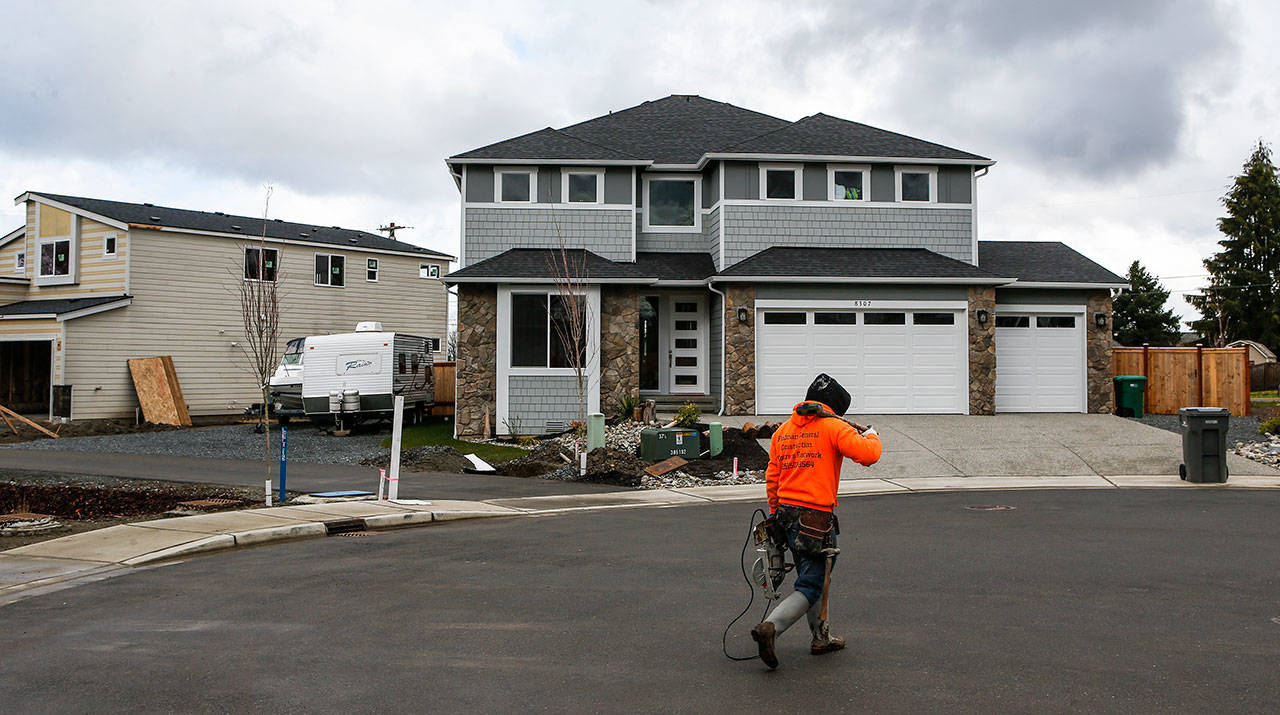EVERETT — A much-advertised cap on local school levies will help ease property taxes in 2019 for most Snohomish County homeowners.
A one-time reduction in the statewide school levy also should help stave off financial pain. The average property-tax bill will drop 1.8 percent compared to last year, though the amount varies by location and in some places is going up.
Homeowners are bound to see that as a welcome shift from a year ago, when school-related property taxes contributed to widespread sticker shock.
In Snohomish County, taxpayers have a new way to see how their taxes are changing and where the money is going. The county Assessor’s Office launched its property tax distribution tool this week.
“They can look very easily at the past three years and see each individual taxing district,” Assessor Linda Hjelle said. “It gives more clarity to what’s happening to their individual property.”
A link is available on the assessor’s home page: https://snohom ishcountywa.gov/5167/Assessor.
The county Treasurer’s Office intends to mail tax statements on Feb. 14.
When they arrive, the average homeowner in Snohomish County can expect to see a property-tax bill that’s $80.33 lower than last year’s, according to figures released Thursday by the county Assessor’s Office. That compares to an average jump of more than $600 from 2017 to 2018.
In 2019, a home valued at the countywide average of $424,300 would typically pay $4,279.74 in property tax.
The areas with the largest average drops in 2019 are Arlington (12.6 percent) and Marysville (11.8 percent).
Rates also vary within cities. And homeowners in some places will see an increase of 1 percent to 6 percent this year, anywhere from about $25 to $188. They include Everett, where a typical homeowner will see a 3.3 percent higher bill. For a house valued at the citywide average of $329,000, it will typically go up by $117.46, to a total of $3,669.50.
Other cities where property-tax bills are going up this year are Granite Falls, Lake Stevens, Lynnwood, Mill Creek, Mountlake Terrace and Stanwood. The outlier is the Snohomish County part of Bothell, where tax bills would rise by 11 percent — about $473.
State-mandated changes to school funding are hardly the only factor in this year’s fluctuations. Voters in 2018 passed 33 of 40 tax-related issues that appeared on local ballots. Of those, 21 were for schools. The others supported services such as fire districts, city government and libraries.
More than 60 percent of the typical property-tax bill in Snohomish County pays for education.
A fix the Legislature adopted in 2017 to address school funding is affecting property taxes throughout the state.
In its McCleary decision, the state Supreme Court concluded the state was not providing ample financial support to public schools and, as a result, districts were relying too heavily on local property taxes to make ends meet.
In response, lawmakers made two significant changes.
They hiked the state’s portion of the property tax rate in 2018 to generate billions of additional dollars for education. With a stronger-than-anticipated economy, the Legislature approved a one-time only decrease for 2019.
As for the other major change, districts are now limited on how much they can collect from voter-approved enrichment levies, formerly known as maintenance and operation levies.
Starting this year, the levy lid is set at the lesser of $2,500 per pupil or a rate of $1.50 per $1,000 of assessed value.
In 2018, local levies in Snohomish County ranged from $1.74 to $3.71.
“All of them in Snohomish County were reduced — some greater than others,” Hjelle said .
Leaders of school districts in Snohomish County and around the state are pushing to get rid of the cap. They contend the change is resulting in a substantial loss of local revenue and is creating serious strain on their budgets. They warn it may lead to reductions in programs and layoffs.
Gov. Jay Inslee and several Democratic lawmakers are backing bills to allow districts to impose a rate to bring in an amount equal to 28 percent of state and federal revenues received in the prior year.
Superintendent of Public Instruction Chris Reykdal is proposing the lesser of 22 percent of those revenues or $3,500 per student.
Jerry Cornfield contributed to this report.
Noah Haglund: 425-339-3465; nhaglund@herald net.com. Twitter: @NWhaglund.
Talk to us
> Give us your news tips.
> Send us a letter to the editor.
> More Herald contact information.

























